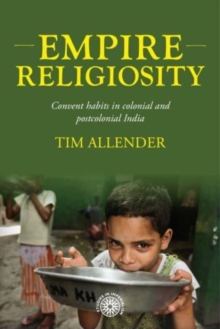
Travellers in Africa : British travelogues, 1850-1900 PDF
by Timothy Youngs
Part of the Studies in Imperialism series
Description
Works of travel have been the subject of increasingly sophisticated studies in recent years.
This book undermines the conviction with which nineteenth-century British writers talked about darkest Africa.
It places the works of travel within the rapidly developing dynamic of Victorian imperialism.
Images of Abyssinia and the means of communicating those images changed in response to social developments in Britain.
As bourgeois values became increasingly important in the nineteenth century and technology advanced, the distance between the consumer and the product were justified by the scorn of African ways of eating.
The book argues that the ambiguities and ambivalence of the travellers are revealed in their relation to a range of objects and commodities mentioned in narratives.
For instance, beads occupy the dual role of currency and commodity.
The book deals with Henry Morton Stanley's expedition to relieve Emin Pasha, and attempts to prove that racial representations are in large part determined by the cultural conditions of the traveller's society.
By looking at Joseph Conrad's Heart of Darkness, it argues that the text is best read as what it purports to be: a kind of travel narrative.
Only when it is seen as such and is regarded in the context of the fin de siecle can one begin to appreciate both the extent and the limitations of Conrad's innovativeness. -- .
Information
-
Download - Immediately Available
- Format:PDF
- Pages:256 pages
- Publisher:Manchester University Press
- Publication Date:01/03/2017
- Category:
- ISBN:9781526123725
Information
-
Download - Immediately Available
- Format:PDF
- Pages:256 pages
- Publisher:Manchester University Press
- Publication Date:01/03/2017
- Category:
- ISBN:9781526123725










